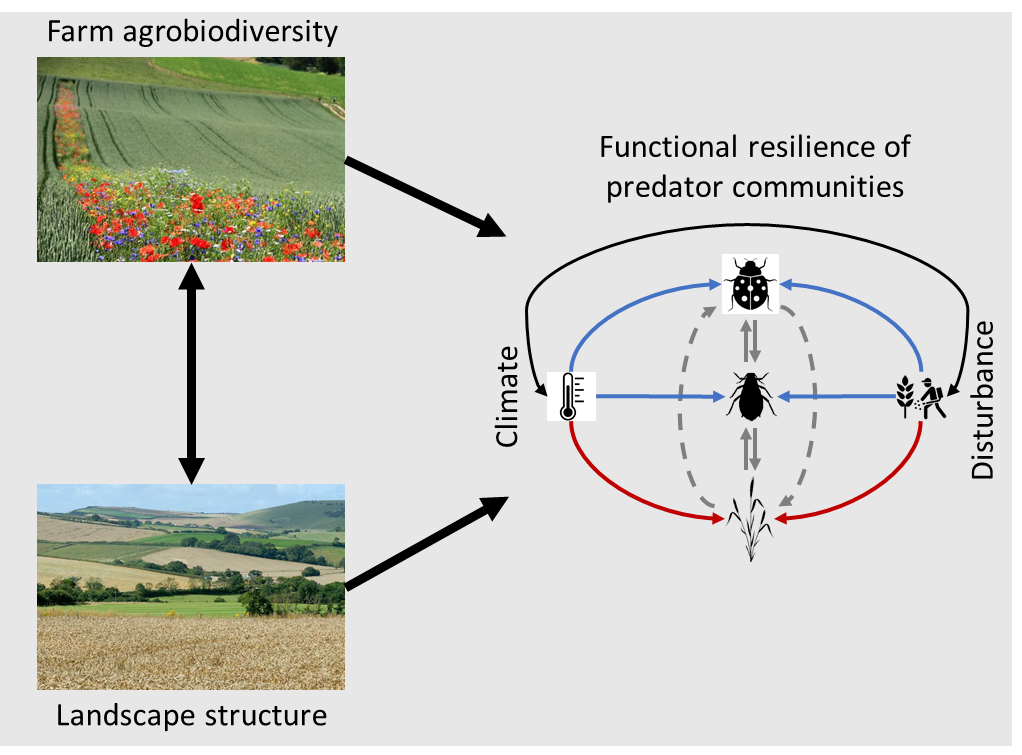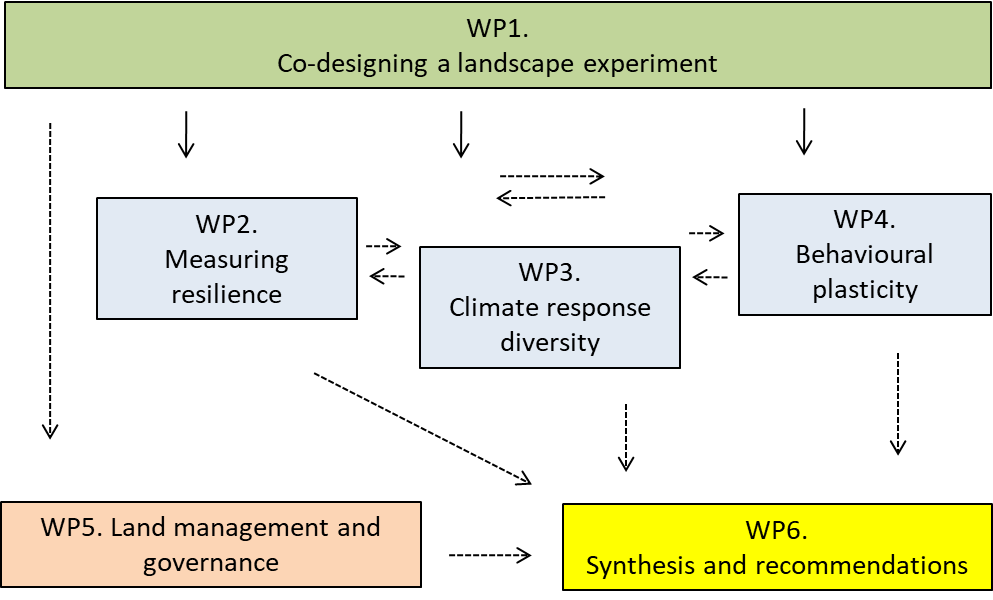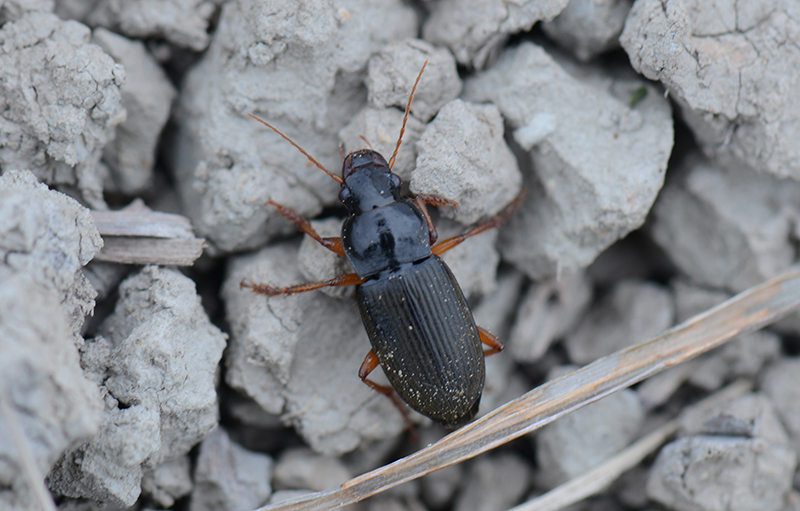
Source: Dr. Mattias Jonsson, SLU
Increased agrobiodiversity is expected to provide more resilient ecosystem functions and services in farmland. This is largely because in diverse communities there are more species that can contribute to the functions (functional redundancy), and because different species are likely to respond differently to environmental variation (response diversity). Unfortunately, attempts to actually measure ecosystem resilience to disturbances, including those related to climate change and agricultural practices, are few. As a result, it is difficult to predict how increasing farmland biodiversity can improve the resilience of agroecosystems and their functions.

Source: Dr. Mattias Jonsson, SLU
Biological control of agricultural pests is an ecosystem service that currently provides humans with great benefits. In recent years, our understanding of how local diversification and landscape context affect agrobiodiversity and the short-term delivery of biological pest control has improved immensely. To date, however, we almost entirely lack studies of how farm diversity and landscape complexity contribute to resilience of biological pest control. The importance of biological pest control is likely to increase across Europe in the future, and a thorough understanding of how to optimize agrobiodiversity management and landscape connectivity to ensure resilient biological control is critical. The overall aim of IMPRESS is to improve our understanding of how agrobiodiversity at local to landscape scales contributes to the resilience of biological pest control and how we can best capitalize on this asset in different landscapes and climatic conditions.

Source: Dr. Mattias Jonsson, SLU
To achieve this, IMPRESS will (i) provide much needed empirical assessments of how natural enemy diversity contributes to resilience of biological pest control under different disturbance and diversification conditions, (ii) use this novel information to better understand the link between farm diversity and landscape complexity to optimize biological control resilience in future climate and land-use scenarios, and (iii) analyse governance and policy strategies currently shaping biological pest control across Europe and identify how to best adapt them to support biodiversity’s ability to provide pest control resilience. The empirical work of IMPRESS will be conducted in cereal systems along a north-south gradient from Sweden, via Germany and Austria, to Italy. IMPRESS will use a novel combination of observational, experimental, and analytical approaches in a transdisciplinary framework combining expertise in agroecology, landscape ecology, molecular ecology, policy and socio-economic sciences. IMPRESS will provide recommendations and tools for how to manage European agricultural landscapes to ensure resilient biodiversity and biological pest control, and will thus help prepare the agricultural sector in Europe for the consequences of climate change.

Source: Dr. Mattias Jonsson, SLU
Dr. Mattias Jonsson
Swedish University of Agricultural Sciences, Sweden
Email: mattias.jonsson@slu.se
Prof. Emily Poppenborg Martin
Justus Liebig University Giessen, Germany
Dr. Matteo Dainese
University of Verona, Italy
Prof. Michael Traugott
University of Innsbruck, Austria
Dr. Ieva Misiune
Vilnius University, Lithuania